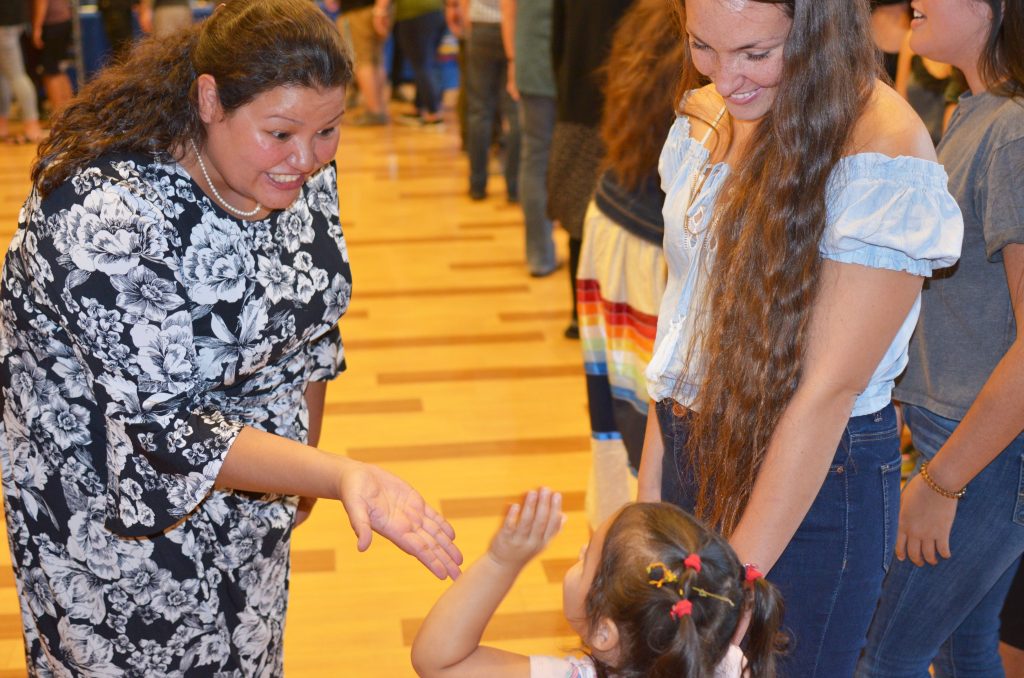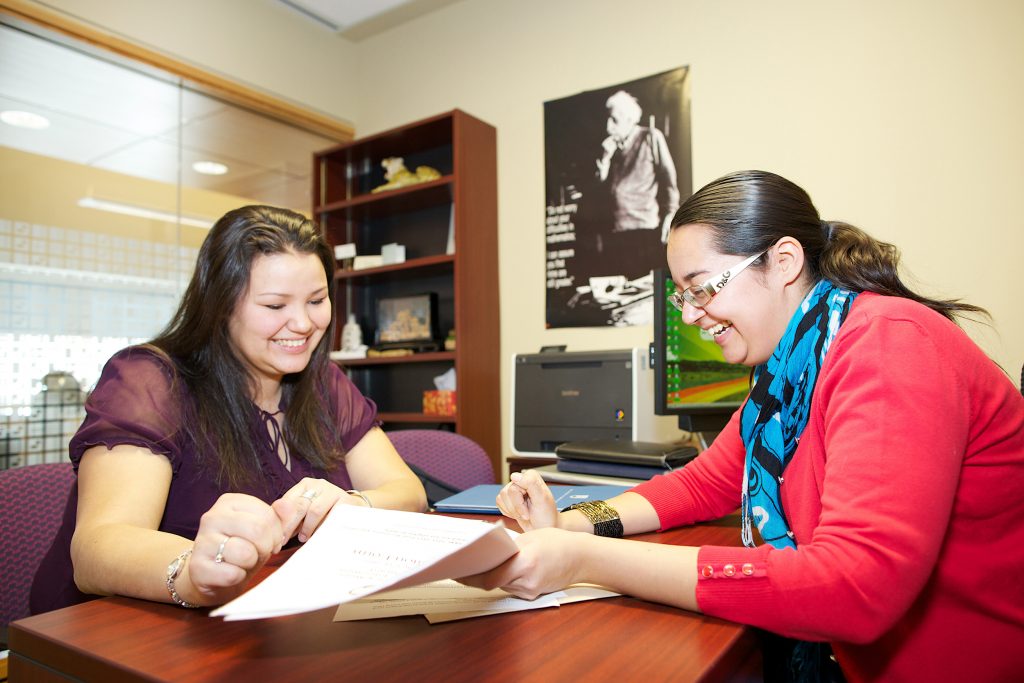In the 2022 June convocation there will be 219 students graduating with a Bachelor of Management (BMgt). While each year convocation represents a significant achievement for graduates, the graduating class of 2022 have an unprecedented achievement in navigating challenges resulting from the pandemic. We sat down with Jo-Elle Craig, Shiven Vinod Khera, and Shreeta Panchmatia to reflect on their time in the Faculty of Management and their remarkable journeys as students at UBC Okanagan.
Q: Shreeta, what first brought you to the Faculty of Management?
Shreeta: I’m from Kenya, and in the town I grew up in it was generally expected for girls to go into science or some form of arts degree, which as a kid, I was like, no, absolutely not. I wanted to do something other than just going into arts or sciences. Because I also studied in the British system, and so I got exposed to business accounting and economics quite early in my high school degree. As it turns out, I was good at the subjects. When I did my first accounting exam, and I got a hundred per cent, I was like, this is it—this is exactly where I’m going with my life. That was the drive to start pursuing management. I was looking for universities outside of Kenya, and I came across UBC and felt it was a great school. I remember my dad saying “If you’re going to Canada, you’re going to one of the top schools.” So, I didn’t apply anywhere besides here.
Q: Jo-Elle, it’s been a challenging few years. Can you share how you and your classmates coped with an unconventional learning journey?
Jo-Elle: I think the number one thing that got me through it is that I had a group of people that I could reach out to at any time. We would get on Zoom sessions together and work on assignments and just sit together in silence even while we were studying. It was great to have that social connection and community. Even though we were online, and even though we were separated by however many kilometers, I knew I could reach out to people, and they could offer support.
I feel like being online it can be so easy to feel disconnected from your degree and from campus. Keeping that point of connection and contact and having those friends to rely on is really what got me through.
Q: Shiven, what will you miss most about your time at UBC Okanagan?
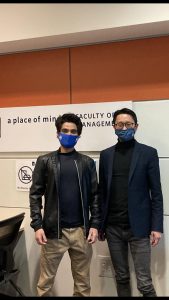
Shiven Vinod Khera and Dr. Eric Li
Shiven: I’m definitely going to miss that huge community. I was lucky that I made a lot of friends in my first year from different faculties so I’m going to really miss them. I’m also going to really miss being a student because being a student here at UBCO has so many privileges. Like, I did my high school in New Delhi, and when I came here, it was a complete paradigm shift. I enjoyed every single second at UBCO because it’s such a great environment.
Q: Jo-Elle, do have advice for the next FOM class coming in?
Jo-Elle: I would just say try everything. Step out of your comfort zone. I’m naturally a very introverted, shy person. When I came into the degree, I was terrified. I was absolutely terrified of public speaking. But I forced myself to step out of my comfort zone and try all these different things.
So try something new, try things that maybe you haven’t even thought of because you will learn so much about yourself. Ultimately you discover so much about yourself and it helps shape who you will become coming out of the degree. I’m really grateful that I took that leap and said, ‘I’m going to do this thing that terrifies me and hope it goes well.’ Ultimately it got me to where I am today and I’m so grateful that I took that first step. Your degree is what you make of it, so make the best of it. There are so many amazing experiences to be had throughout your time here. For example, Co-op, Go Global etc.. Keep an eye out for opportunities that come your way and take a leap of faith!
Q: Shreeta, as a graduating student in the class of 2022, you would’ve been thrown into a unique situation during your studies. Can you share how you managed that disruptive change during your academic life?
Shreeta: There were a few ways I coped with the pandemic. I’m not saying I did necessarily well at coping at the beginning because I don’t think a lot of people were coping well at the very beginning. I think the best choice I made was to apply for residency and live on campus, which was great because that meant my RAs would get me out of my room and make me do things! And I was still in Kelowna, so I felt like I was still going to school. I could go to the library or to the Commons and study there, which felt better than if I had maybe flown back home. I also had a great group of friends who are based in Kelowna. So even though the pandemic was a big issue at that time, we could safely meet up and chat and take a break from everything.
Q: Shiven, when you reflect on where you were in 2017 and where you are now, what kind of advice would you offer your younger self?
Shiven: Honestly, one thing I’m really proud of is that I’ve fully lived my university experience. I’m so happy with the way things went. So, I wouldn’t want to change too many things. But if I can give any advice to an undergraduate student who’s just entering university, it would be to really let yourself out and go network with your peers. Participate in as many small little challenges as possible with the Management Students Association. One big piece of advice would be that if you have an idea in mind, go and talk to a professor about it. Find a buddy and just start doing something. You know, one thing leads to another, and you never know where it’s going to lead to. My advice would be just to participate and enjoy your university life. Because it’s such an amazing experience and I’m so grateful for it. I’m going to miss my time at UBCO.
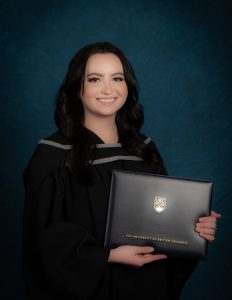
Jo-Elle Craig
Q: Jo-Elle, as graduating head of class, is there anything you you’d like to say to the class of 2022?
Jo-Elle:I think the one thing I’d want to say and that is that I’m really proud of all of us, you know? The amount of people that I’ve met, connected with, created friendships and memories with. I’m so grateful to have met them and have been impacted by them and their stories and having had this experience with them. It’s been so unconventional and not at all what we expected. I’m just so proud of us for getting through this and graduating together as a class and that we’ll get to do it in person. I really think we’re going to do great things going forward, and I’m excited to see where we all end up and where we go.
One thing I know for sure is that we can handle anything that’s thrown at us!
For more information on graduation at UBCO, explore UBC Okanagan’s graduation portal.

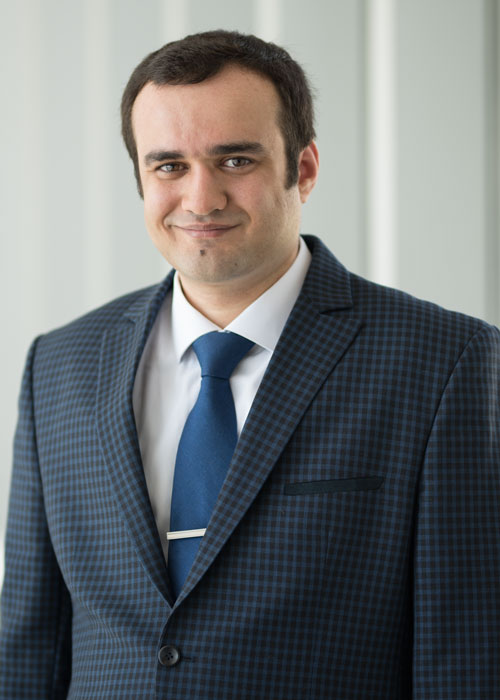
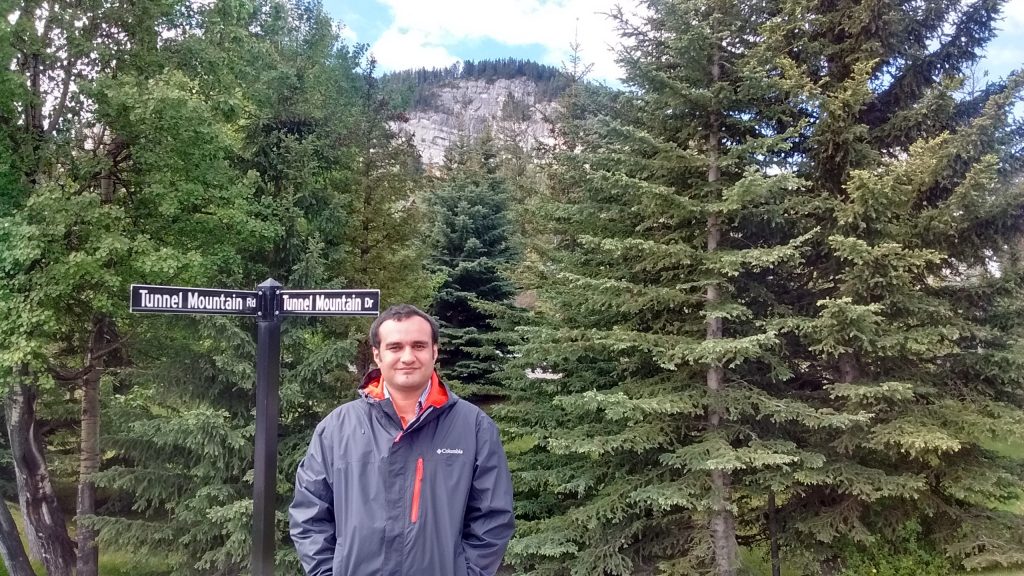
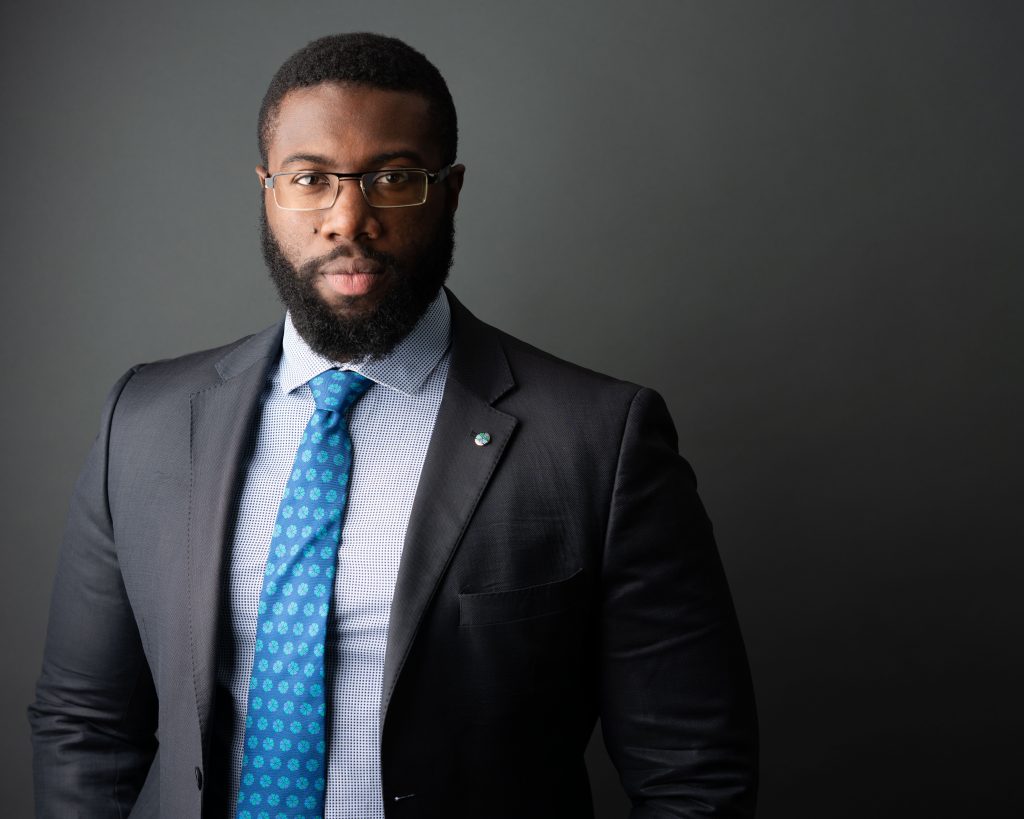
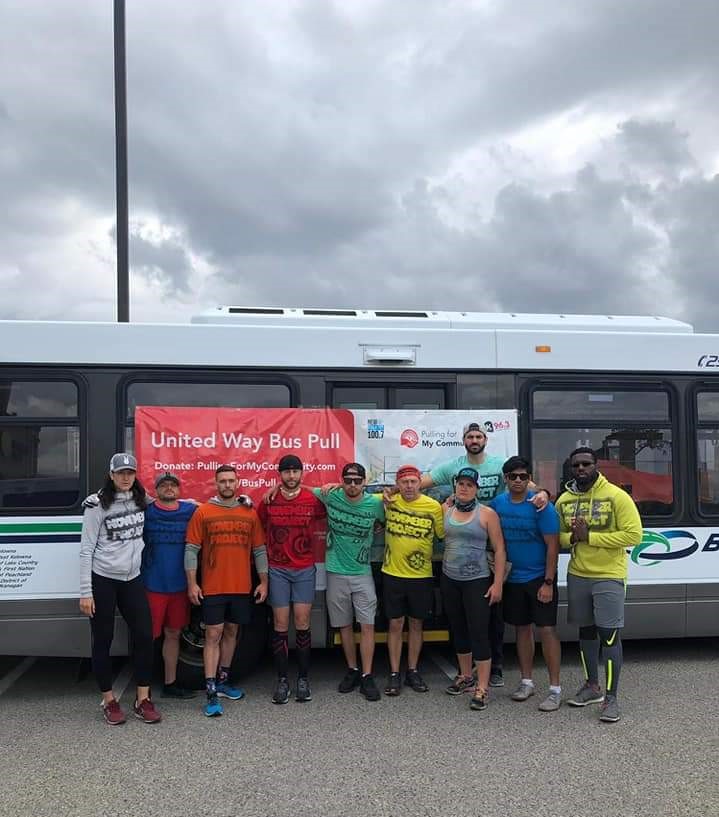
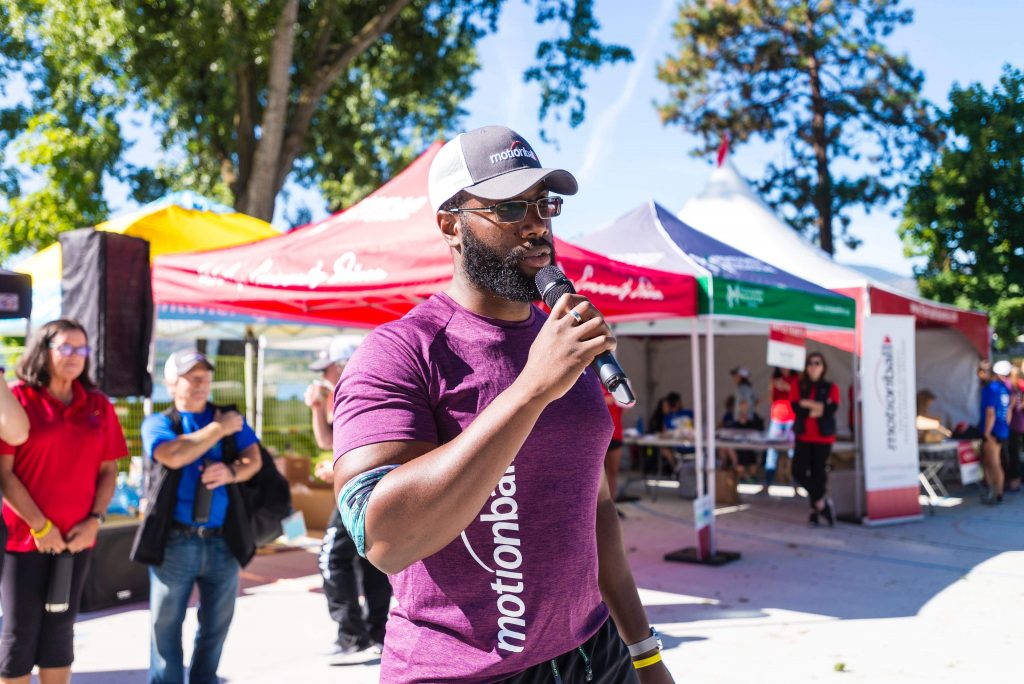
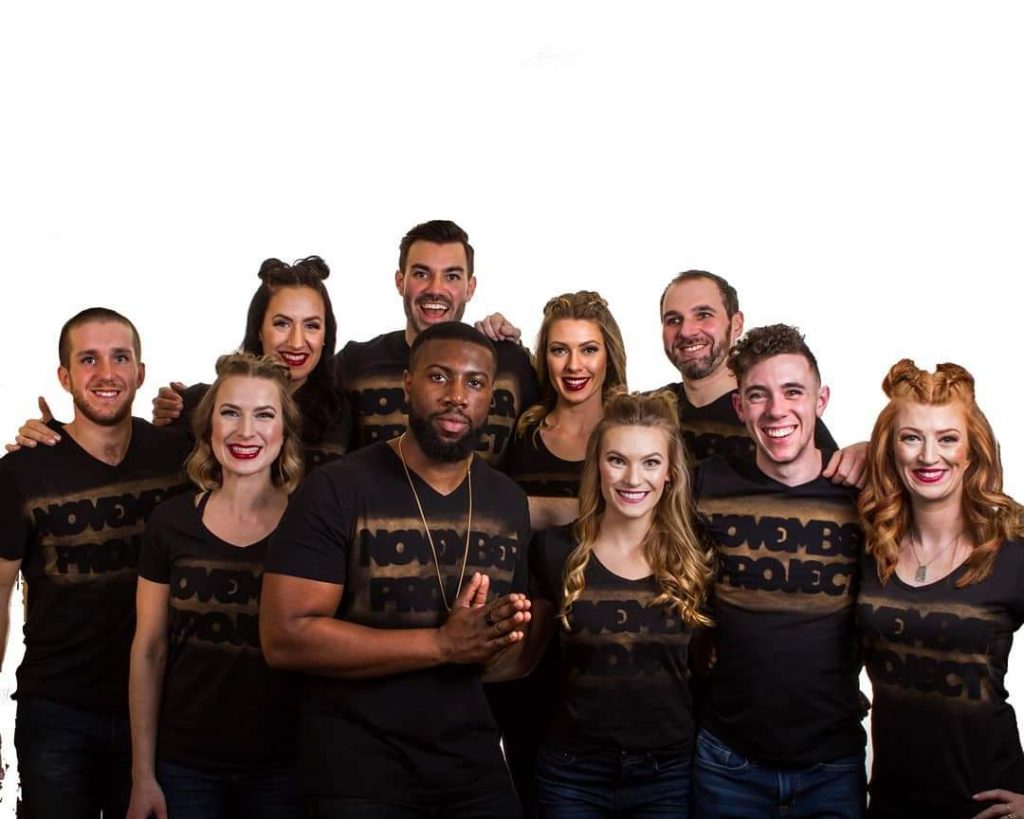

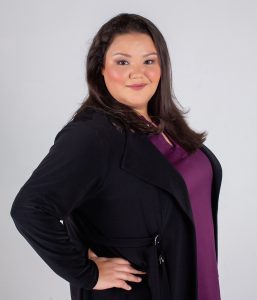 In my first semester, my mom passed away from cancer just days before my first exams. But because of the incredible support of Aboriginal Programs and Services, and of my professors, I was able to get support. They made accommodations for me so I could deal with the loss of my mother and honor the promise I had made to her that I would continue with my studies. That was always a driving force behind my academic journey.
In my first semester, my mom passed away from cancer just days before my first exams. But because of the incredible support of Aboriginal Programs and Services, and of my professors, I was able to get support. They made accommodations for me so I could deal with the loss of my mother and honor the promise I had made to her that I would continue with my studies. That was always a driving force behind my academic journey.